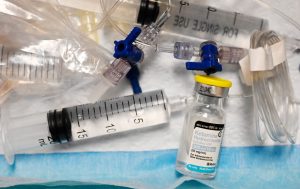Introduction
The realm of mental health care is witnessing a paradigm shift with the exploration of psychedelic medication as a potential transformative tool. Dr. Emily Rodriguez, a psychopharmacologist and mental health researcher, sheds light on the current research, therapeutic applications, and the promising future of psychedelic medication in mental health care.
1. The Resurgence of Psychedelic Research
Dr. Rodriguez introduces the resurgence of interest in psychedelic research and its potential impact on mental health treatment.
Historical Context
- Revival of Interest: After decades of limited research, there is a renewed interest in studying the therapeutic potential of psychedelics, including substances like psilocybin and MDMA.
- Shifting Perspectives: Psychedelics are shedding their historical stigma and are increasingly recognized for their potential therapeutic benefits.
2. Therapeutic Applications of Psychedelic Medication

Dr. Rodriguez explores the diverse therapeutic applications of psychedelic medication.
Psilocybin-Assisted Therapy
- Treatment-Resistant Depression: Early studies suggest that psilocybin, found in magic mushrooms, may be effective in treating individuals with treatment-resistant depression.
- End-of-Life Anxiety: Psilocybin-assisted therapy has shown promise in alleviating anxiety and existential distress in individuals facing end-of-life issues.
MDMA for PTSD
- Post-Traumatic Stress Disorder (PTSD): MDMA-assisted therapy is being investigated as a potential breakthrough for individuals struggling with PTSD, fostering emotional processing and healing.
- Enhanced Therapeutic Alliance: MDMA’s ability to enhance the therapeutic alliance may contribute to more profound breakthroughs in trauma-focused therapy.
3. Neurobiological Mechanisms and Psychedelic Effects

Dr. Rodriguez delves into the neurobiological mechanisms that underlie the effects of psychedelic medication.
Serotonin Receptor Activation
- Modulation of Serotonin Receptors: Psychedelics primarily interact with serotonin receptors in the brain, influencing mood, perception, and cognition.
- Neural Connectivity Changes: Research suggests that psychedelics may induce changes in neural connectivity, potentially facilitating novel perspectives and insights.
4. Safety and Ethical Considerations
Dr. Rodriguez addresses safety concerns and ethical considerations associated with the use of psychedelic medication in mental health care.
Risk Mitigation Strategies
- Controlled Settings: Ensuring administration occurs in controlled settings with trained professionals helps mitigate risks and optimize therapeutic outcomes.
- Screening Protocols: Rigorous screening protocols are essential to identify individuals for whom psychedelic therapy is appropriate, minimizing potential adverse effects.
5. Integration of Psychedelic Therapy into Mainstream Mental Health Care

Dr. Rodriguez discusses the potential integration of psychedelic therapy into mainstream mental health care.
Professional Training and Accreditation
- Specialized Training: Mental health professionals may undergo specialized training and accreditation to administer psychedelic-assisted therapies safely.
- Collaborative Approaches: Collaboration between mental health professionals, researchers, and policymakers is vital for developing ethical guidelines and frameworks for psychedelic therapy.
6. Public Perception and Destigmatization
Dr. Rodriguez explores the evolving public perception of psychedelic medication and the destigmatization efforts underway.
Shifting Paradigms
- Educational Campaigns: Public awareness campaigns can help disseminate accurate information about psychedelic therapy, challenging outdated stigmas.
- Media Representation: Responsible media representation can contribute to destigmatizing psychedelics and framing them as legitimate tools for mental health improvement.
7. Future Prospects and Continued Research
Dr. Rodriguez concludes with insights into the future prospects of psychedelic medication in mental health care.
Expanded Research Initiatives
- Broader Exploration: Ongoing and expanded research initiatives are crucial for understanding the full spectrum of psychedelic therapy’s potential applications.
- Regulatory Frameworks: Developing ethical and robust regulatory frameworks will be pivotal for ensuring the safe and controlled integration of psychedelic therapy into mental health care.
Conclusion
Dr. Emily Rodriguez’s insights illuminate the transformative potential of psychedelic medication in mental health care. As research progresses, the integration of psychedelics into mainstream mental health treatment may offer a new and promising toolbox for addressing a range of mental health conditions, ushering in an era of innovation and hope for individuals seeking effective and novel therapeutic approaches.










